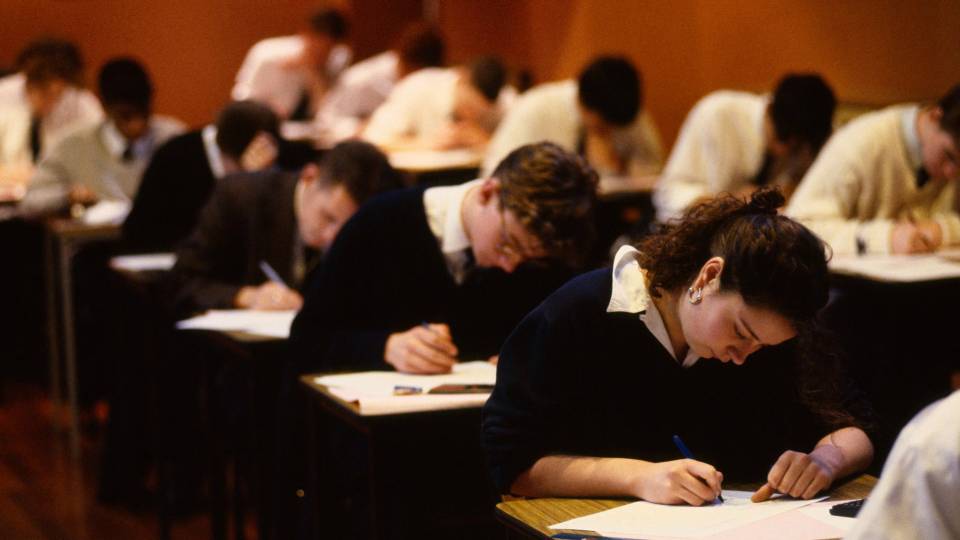Natural Selection Making 'Education Genes' Rarer, Says Icelandic Study
Tempting as it may be, it would be wrong to claim that with each generation humans are becoming more stupid. As scientists are often so keen to point out, it is a bit more complicated than that.
A study from Iceland is the latest to raise the prospect of a downwards spiral into imbecility. The research from deCODE, a genetics firm in Reykjavik, finds that groups of genes that predispose people to spend more years in education became a little rarer in the country from 1910 to 1975.
The scientists used a database of more than 100,000 Icelanders to see how dozens of gene variants that affect educational attainment appeared in the population over time. They found a shallow decline over the 65 year period, implying a downturn in the natural inclination to rack up qualifications.
But the genes involved in education affected fertility too. Those who carried more “education genes” tended to have fewer children than others. This led the scientists to propose that the genes had become rarer in the population because, for all their qualifications, better educated people had contributed less than others to the Icelandic gene pool.
Spending longer in education and the career opportunities that provides is not the sole reason that better educated people tend to start families later and have fewer children, the study suggests. Many people who carried lots of genes for prolonged education left the system early and yet still had fewer children that the others. “It isn’t the case that education, or the career opportunities it provides, prevents you from having more children,” said Kari Stefansson, who led the study. “If you are genetically predisposed to have a lot of education, you are also predisposed to have fewer children.”
But the effect is very small. Writing in the Proceedings of the National Academy of Sciences the researchers estimate that it corresponds to a drop in IQ of about 0.04 points per decade. If all the genes that contribute to education were included, they add, that figure might rise to 0.3 points per decade. Nevertheless, Stefansson believes that if the trend continued for centuries, the impact could be serious.
“The cumulative effect over time means this is going to have a dramatic effect on the genetic predisposition to educational attainment, and unless something comes along to counteract that, it could have a profound effect on educational attainment in our society,” he said.
But, as other scientists point out, genetics has only a minor influence on education. “There are a number of studies saying we are getting dumb and dumber, but the effects are really weak,” said Melinda Mills, professor of sociology at Oxford University. “The education we have, when we have children and how many, is largely socially and environmentally determined. It overrides the genetic effect. Over the years, we’ve had an expansion in education and women can now have three to four more years of education than they did in 1910.”
“There is definitely a genetic overlap between higher educational attainment, having children later and having fewer children. But whether you can say that results in changes over time, and in evolution, I’m not so sure,” Mills added. “To have natural selection and evolution you need something to be happening in a consistent manner over many generations.”
Jonathan Beauchamp, an economist at Harvard University, reported in 2016 that natural selection was acting, very gently, against genetic variants for education in an American population. But he said predicting future trends was “problematic”, because no-one knows what changes in culture and society the future will bring.
Stefansson concedes that changes in education can swamp any genetic effects, writing that IQ scores rose by nearly 14 points between 1932 and 1978, as technological and socioeconomic changes boosted education on a mass scale. “There are all kinds of things in the environment that may prevent this decline having all that much impact on the true education that people receive,” he said.
Ewan Birney, director of the European Bioinformatics Institute in Cambridge, said he feared the study could be misinterpreted as saying that education was determined by genetics, so those who struggled at school could not be helped by improved teaching. “This is not right, and I cannot emphasise this enough,” he said.
Robert Plomin, a behavioural geneticist at King’s College London said that the paper was a demonstration of how polygenic scores – which measure a person’s genetic strengths and weaknesses – are at the frontline of the DNA revolution. “They have already changed science and will soon affect the clinic and society,” he said.
“Although the effect of the polygenic score for educational attainment on fertility is weak and needs replication in populations other than Iceland, this study is a harbinger for the new directions in research that will be possible as bigger and better polygenic scores come online,” Plomin added






















